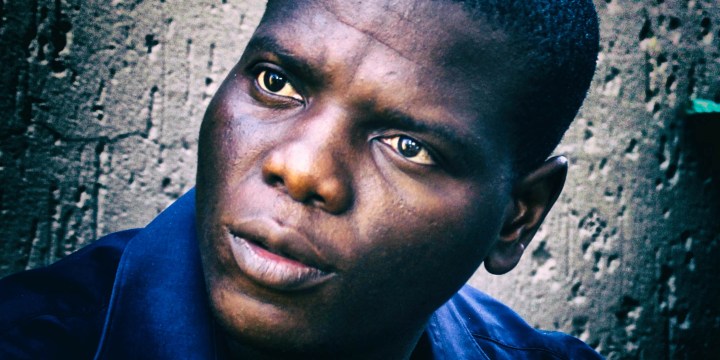NEWSFLASH
Justice Minister calls for a victim-centric parole system

With a string of recent violent crimes in the Western Cape allegedly having been committed by offenders released on parole, Minister of Justice and Correctional Services Ronald Lamola called an urgent meeting to address the efficacy of the parole board, which in some cases doesn’t inform or consult victims or their families before offenders are released.
Victims of heinous crimes are not always informed when offenders are considered for parole, according to Minister of Justice and Correctional Services, Ronald Lamola.
High-ranking officials, including Lamola, and his deputy, Nkosi Patekile Holomisa, met on Monday and Tuesday to discuss issues within the parole system.
The meeting followed a string of murder and rape cases of young children in the Western Cape allegedly committed by offenders released on parole.
In recent cases, the man accused of the murder of Tazne van Wyk, Moyhdian Pangarker, was an absconded parolee, and Reagan Gertse’s alleged killer, who is yet to be named, was out on parole after being convicted and sentenced to 12 years in prison for the rape of a five-year-old boy.
“If a case of Tazne or Reagan does not give us a perspective about reforming the parole system, nothing else will,” said Lamola.
Lamola was briefing the media on the outcome of a meeting which addressed the efficacy of the national parole system. The briefing took place at the Goodwood Correctional Facility on 4 March 2020.
He emphasised the importance and need of a victim-centric parole process.
“There must be consultation with our victims in all matters, especially if it could affect the public good. We cannot circumvent those laws,” said Lamola.
The minister explained that offenders don’t automatically qualify for placement on parole, but a number of factors are considered by the Head of Correctional Centre (HCC), the Parole Board or the minister, depending on the category of the crime.
Judge Siraj Desai, Chair of the National Council of Correctional Services, explained that the parole system is meant to inform and consult victims when offenders are eligible for parole.
“Victims have an opportunity to engage in what is called a victim-offender dialogue with the inmate. It is not compulsory for the victim, but should they choose this, inmates are obliged to attend.”
However, Michaela Williams’ allegeded murderer, who has not been named publicly, was out on parole after the rape and attempted murder of a 12-year-old girl. The victim and her family were not informed of his release and only became aware of the fact after they had seen him in the community.
The parole system was implemented in South Africa 15 years ago. Speaking about who forms part of these parole boards, Desai said that “an important point that was made [15 years ago] was that lay people also participate in the parole process.
“Parole boards consist of a person from the police, a person with some legal background, somebody from the department, and somebody from the community.
“What is concerning is that many of these parole boards do not have sufficient members.
“It is true that most of these parole boards are not fully complemented,” said Desai, who turned to Lamola and said that it is an issue the department needs to address.
Lamola explained that the parole process is an internationally accepted mechanism that allows for the conditional release of offenders from Correctional Centres into the community.
“Parole forms part of the total rehabilitation programme in correcting offending behaviour and may include continuation of programmes aimed at reintegration whilst in the system of community corrections. It is regarded as an aid to the reintegration of offenders into society and a mechanism to manage the risk offenders may pose to the community through monitoring,” said Lamola.
Desai added that parole is not a “final decision” but is open to review.
“The families of the victim can contact the commissioner or the minister of the respective judge to constitute a review process.”
In 2019, Janusz Walus, who murdered Chris Hani, was denied parole by past Minister of Justice and Correctional Services, Michael Masutha, after both Hani’s family and the South African Communist Party opposed the parole application.
A crucial issue was that insufficient data was placed before boards prior to a decision being made. Lamola said a lack of data also meant rehabilitation programmes were not tailored to individual offenders, their specific crimes and the underlying factors that resulted in the crime being committed.
Lamola said the department is consulting with the National Council of Correctional Services on the parole reforms and plans are in place to create a victim-centric system.
The department will also be consulting experts such as criminologists and psychiatrists to address issues in the Western Cape, mainly related to gender-based violence and femicide. DM


















 Become an Insider
Become an Insider